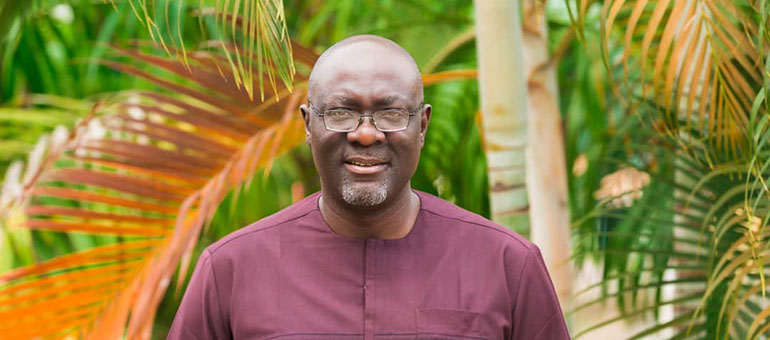Can you please describe your role?
I am Country Director of GAIN in Nigeria. I am no longer new in the organisation, as I have been in this role for over a year now. However, I am still learning – about the organisation and about the sector, which is new to me.
Which is the greatest nutrition challenge in Nigeria?
The biggest issues for us in Nigeria are undernutrition and micronutrient deficiencies in children under five and in women of reproductive age. We have had many years of slow progress and even reversals for key indicators of infant and young child nutrition. Stunting, wasting and underweight rates for children under 5 are scandalous on average for a country like Nigeria and scary for some of our worst affected states/regions. With a third of all children under 5 stunted, we are talking millions of children in the largest African country by population.
Micronutrient deficiencies are also severe and widespread. Anaemia, primarily due to iron deficiency, affects 71% of children and levels of vitamin A deficiency in children under 5 qualify Nigeria for “severe public health problem” status, according to WHO prevalence classifications. But malnutrition in Nigeria is complex: alongside the undernutrition problem, we are now seeing increasing levels of overweight and obesity, especially in women, which means that we are now dealing with a double malnutrition burden.
In your view, what does it take to end malnutrition in Nigeria?
Like in most other countries, the response to malnutrition in Nigeria has to be a multi-stakeholder effort requiring government, the private sector and civil society investments and actions working in strong, focused alliances and partnerships. Government leadership and action is particularly important, but this has been lacking over the years. Government policies and strategies are not backed by the political will to effectively lead and coordinate action, or by adequate funding to implement those policies and strategies. The focus has been predominantly on health systems and nutrition-specific interventions. However, we now need to invest more in supporting our food system to deliver more nutritious foods to those who desperately need to be nourished.

Michael Ojo is GAIN's Nigeria Country Director and is based in Abuja. © GAIN
What part of your job do you enjoy the most? Why?
So far, the most exciting part of my job is the innovativeness of GAIN’s projects and approaches in the Nigerian nutrition sector. We are continually leading on innovation and extending the boundaries of established approaches, working with an economic development mindset within the international development sector. This places us squarely in the space between the private sector, government, and traditional development actors providing us a niche role in connecting these agencies together to bring forward new ways of tackling the malnutrition problem at scale.
What are the rewarding aspects of leading a team at country level?
One of the most rewarding aspects for me is leading such a high-quality team. It does feel good working with a team of professionals who are self-driven and highly motivated by the impact of their work and can clearly see how their individual contributions are making a difference in the way nutritious food businesses grow and scale, and consequently in the lives of ordinary Nigerians.
What are the most challenging parts of your work?
I wish I had more – more funding for more work, and more people to help us deliver on current commitments. My staff are incredibly stretched and I sometimes feel guilty about asking them to do even more. Beyond the team, working in Nigeria has its unique frustrations: we all see the opportunities to make significant change happen and to improve the lives of so many people currently suffering from malnutrition. However, complex systemic issues get in the way of success. The hope and expectation that the change we want will happen one day drives us in our work.
Which is your greatest achievement in this role so far?
The capacity to influence depends on the quality of your work and the credibility your voice commands. When I started, GAIN Nigeria had lost some ground in this respect. One of my most important achievements so far has been to raise the profile of the organisation by leading high-quality work, initiating new and innovative interventions, and ensuring that GAIN is once again seen a partner of choice by key stakeholders in Nigeria when it comes to solving the malnutrition problem.